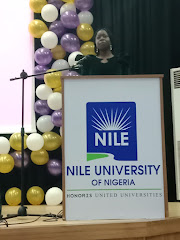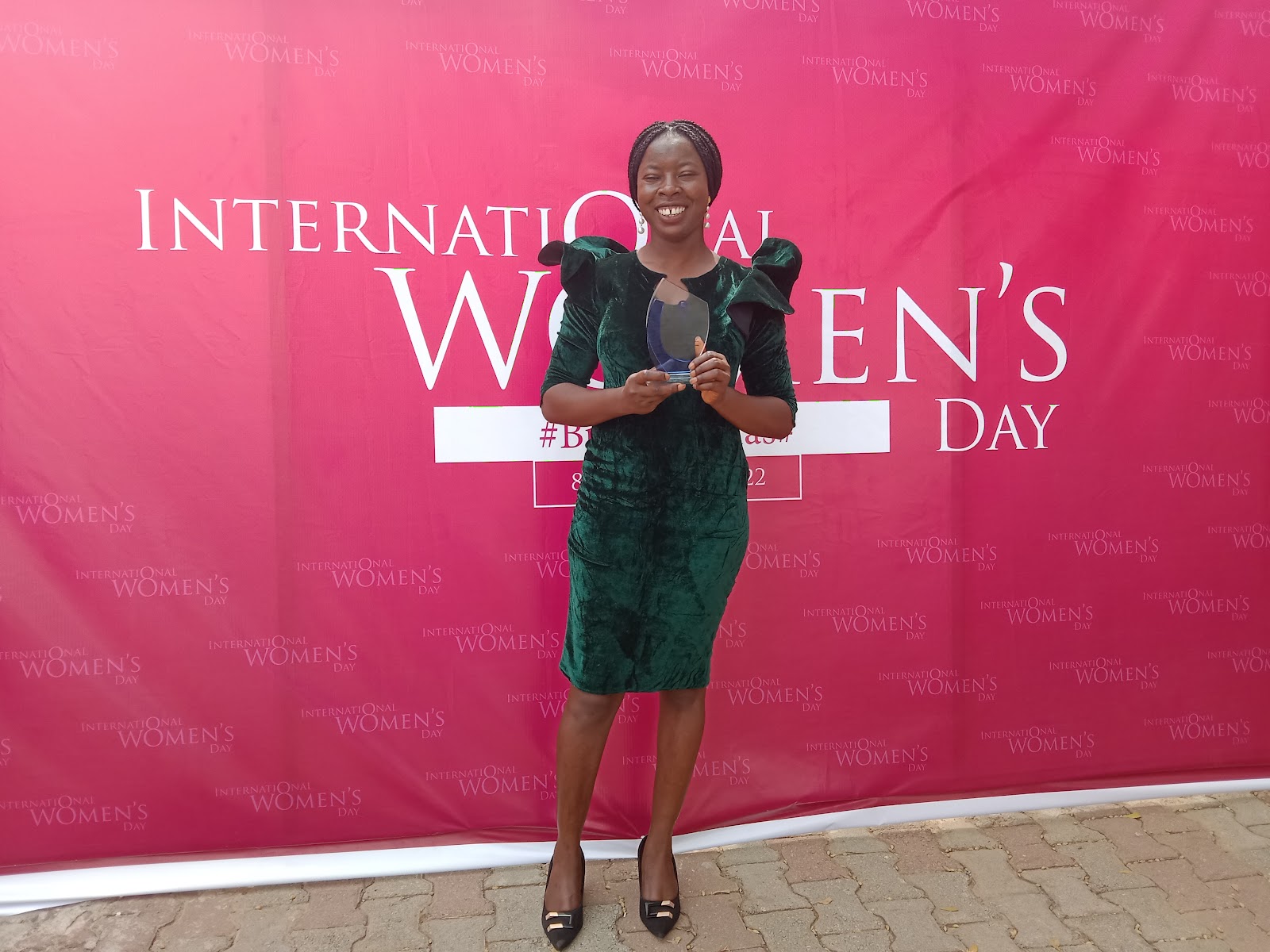A cancelled history, containing the fact that we cannot solve the
climate crisis without women and girls
On international women’s day I was invited as
speakers on several platforms; Nile University of Nigeria, Georgetown Institute
for Women, peace and Security, AGRA,Eygpt’ COP27 presidency side event on young
women in agriculture, Amos Trust webinar (as one of the female fellows), center
for gender, power and diversity at Rockilde University in Denmark among other
upcoming events. These events were virtual except that of Nile University of
Nigeria. So, here is my speech to the student and staff of Nile University of
Nigeria below.
I had my tertiary education far away from home.
As a young lady for the first time I got to see another view of what the world
looks like and experience its reality. While I was an undergraduate student, as
a new student I came across different world that are not common but found
within the university environment. On different occasions I hear the word
“Jamo” being referred to by the male folks to the female folk. On one of these
occasions I asked what the meaning? I was told it could mean prostitute – such
a wrong word! I was told that the name was derived at an early stage of the
university when there was only one hostel for both male and females. They have
eventually passed judgement to history but not telling the truth the way it is.
And a one sided history is a cancelled history because there is more to it.
However, history exists but it is how we tell them matters.
When I was in primary school, I had this little
argument with a male classmate. He told me that girls’ education will end in
the kitchen. I wondered how naive he was – maybe he must have known better by
now. Then I know nothing about gender equality but I know within me that it is
a grievous injustice to be done unto women whether educated or not for our
rights to be limited because we have women like LadiKwail that her skills
empowered her and she broke the bias – she became an honorary doctor. This has
inspired many women to become creative. We also have women like Rita Idehai,
AdejokeLasisi who are re purposing waste into bags, shoes and other reuse items.
Just imagine if her role has been limited to the kitchen, maybe our society
will have been undeveloped. Though, I was able to tell him that my education
will not end in the kitchen. Then he went ahead to say that his wife and
sisters’ education will end in the kitchen. Seeing women as a liability has
become a stereotype and a norm that we need to break free from. From research,
it is further stated that it is during drought and flood that girls are married
off – we need not to normalize using girls as a survival strategy to deal with
the impacts of the climate crisis because today’s girls are tomorrow’s women.
Also, the climate crisis has the face of women and girls. How do you expect our
society to be stable when more than half of the people (women) that make up the
population are left behind? How do we solve the defining issues of our time
when women struggle to be part of the society? Sometimes, I feel men are
threatened by a gender- balanced world. Otherwise, what will it take for the
gender bill to be passed? Just because we are underrepresented in different
arms of governments doesn’t mean we are a weaker vessel yet we have what it
takes to bring about a sustainable world. Gender equality is all about knowing
your rights and using your rights. Today, I remember the Chibok School girls
and other victims of abduction including those whose rights have been marginalized
from exercising our equal rights. It is possible that one of these girls can
become the first female governor in her state. Every day, we lose change makers
(women) due to traditional and social norms. Leaving women behind in solving
the climate crisis is the most dangerous thing to do because we are not just
leaving women behind but also depriving ourselves of the vital contribution in
solving climate change. If we have attained gender equality, maybe we might
have found the lasting solution in solving the defining issues of our time such
as food insecurity, hunger, poverty and even education for all. Every bit of
solution matters. Her voice can become your voice and her voice can become our
voice.
Likewise, the climate crisis is sweeping away our
history thereby making our society become less safe for women and girls to
exercise their rights. The beginning of a history starts with once upon a time
which tells you if a history is made or cancelled. Once upon a time when women
were kings and rulers of their communities but in our world today, it is seen
as a taboo or arward. Nevertheless, we can change this narrative and bring back
the cancelled history if only our society can create a safe place for women and
girls to exercise their rights. It is possible that the first female president
or governor will emerge from this university then history will be made because
making history can create a narrative of what a society should look like. You
can be the voice your society needs. The climate crisis makes us a slave of our
own right - thereby negotiating for it. What we could adapt now, was never part
of our history. I know women to be resilient enough and could use their
indigenous knowledge to transform our society. Sometimes I wonder how we got
here, struggling for our rights. Like bearing the brunt of the climate crisis
such as the drought, flood and heatwave. The danger of a cancelled history is
that it erases the normal reality and brings in a new reality that distorts our
rights. The climate crisis provides an enabling environment for a cancelled
history. We want a society where our constitution will have a feminine face. I
believe gender equality is not against anyone’s religion or tradition so we
need to rethink it.
Oladosu Adenike award at Nile University of Nigeria.
Also, child marriage is neither a protection nor
is it a financial solution – it is a denial of her rights. Breaking the bias is
a way of rewriting our story that – women make history, history doesn’t make
women. Likewise, my fight for the restoration of Lake Chad is also a fight to
strengthen women’s rights through access to resources such as land and water
that will ease their everyday burden and increase democracy in the region and
beyond. Sometimes I wonder how long it will take to achieve gender equality –
1year, one decade, or a century? Being disadvantaged twice comes from the fact
that women are at the frontline of the impacts of climate change but yet are
left behind when decisions in proffering solutions that matter to our equal
rights are taken.According to the UN Women report, it says “it will take women
135 years to close the gap” that means that it will take more than a century to
get climate justice because there is no climate justice without gender justice
because justice for one will become justice for all. A sustainable world is
possible if only we can integrate women as part of the solution.
By OladosuAdenike – The Ecofeminist, peace and
green democracy advocate.
Writes from Lake Chad region of West Africa.
Email: oladosuadenike32@gmail.com







0 Comments
We are open to listening to your comment.